Did you know that a typical Christian today is a non-white woman in Asia, Africa, or Latin America? Currently, over two-thirds of the world’s Christians reside outside the West and a quarter of them live in Africa.
If you are keen to explore the study of Christianity and examine its many voices and spiritualities from historical, social, and theological perspectives then ‘World Christianity and Spirituality: Narratives of Human Flourishing’ is the unit for you!
Discover the less-heard Christian narratives and human flourishing in global contours such as Samoan, Chinese, Diasporan, and Nigerian spiritualities.
This subject is face-to-face in the classroom at Whitley College and runs over six sessions from 9:30am – 5:30pm.
The dates include:
- Aug 9 & 23
- Sep 6 & 20
- Oct 11 & 25
Enrolments close on Friday, July 19!
Read more about the unit here.
Meet the Lecturer
Xiaoli has taught and presented in both academic and church settings across Oceania, Asia, Africa, and North America. Her published works are dedicated to profiling less-heard voices from the Global South to encourage dialogue and mutual enrichment across the globe. Xiaoli teaches at several Australian universities with visiting appointments at Fuller Theological Seminary, Princeton Theological Seminary, and Boston University, USA. We are thrilled to welcome Xiaoli as an adjunct lecturer at Whitley in Semester 2.
Unit information
| Unit Codes | DM2080W (Undergraduate) DM3080W (Undergraduate level 3) DM9080W (Postgraduate elective) |
| Explore Study with Whitley | See the Timetable See what’s on offer for you in Semester Two at Whitley. ENQUIRE TODAY! Applications close Friday, July 19. |
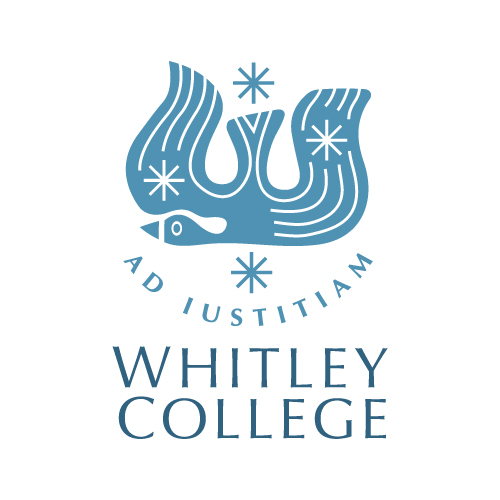
Whitley College is a college of the University of Divinity from the Baptist tradition, based in Melbourne, Victoria.


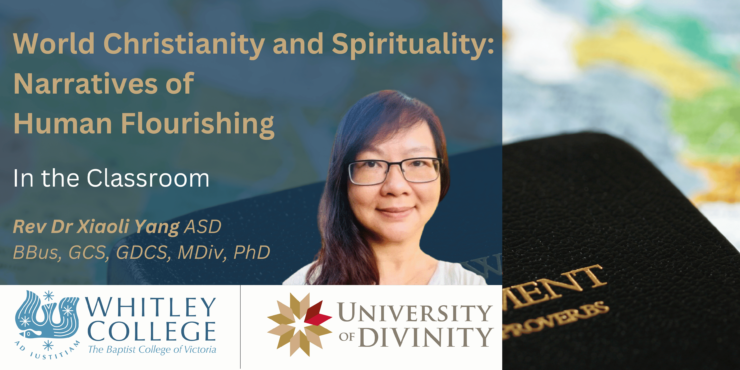
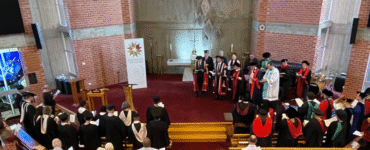
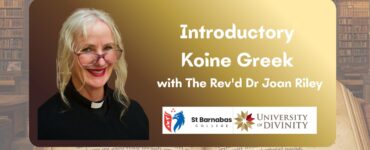
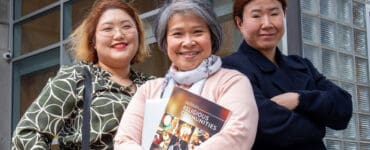
Add comment